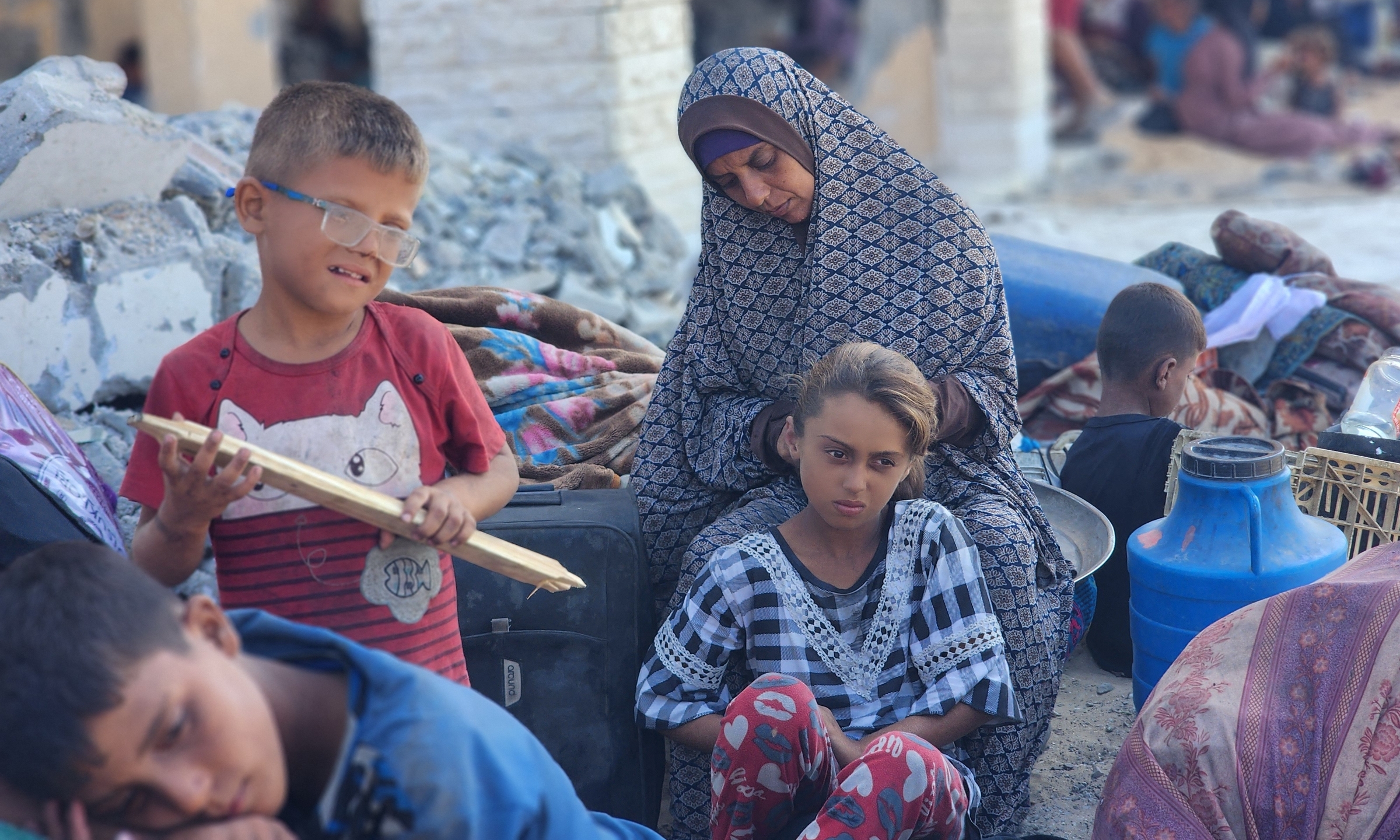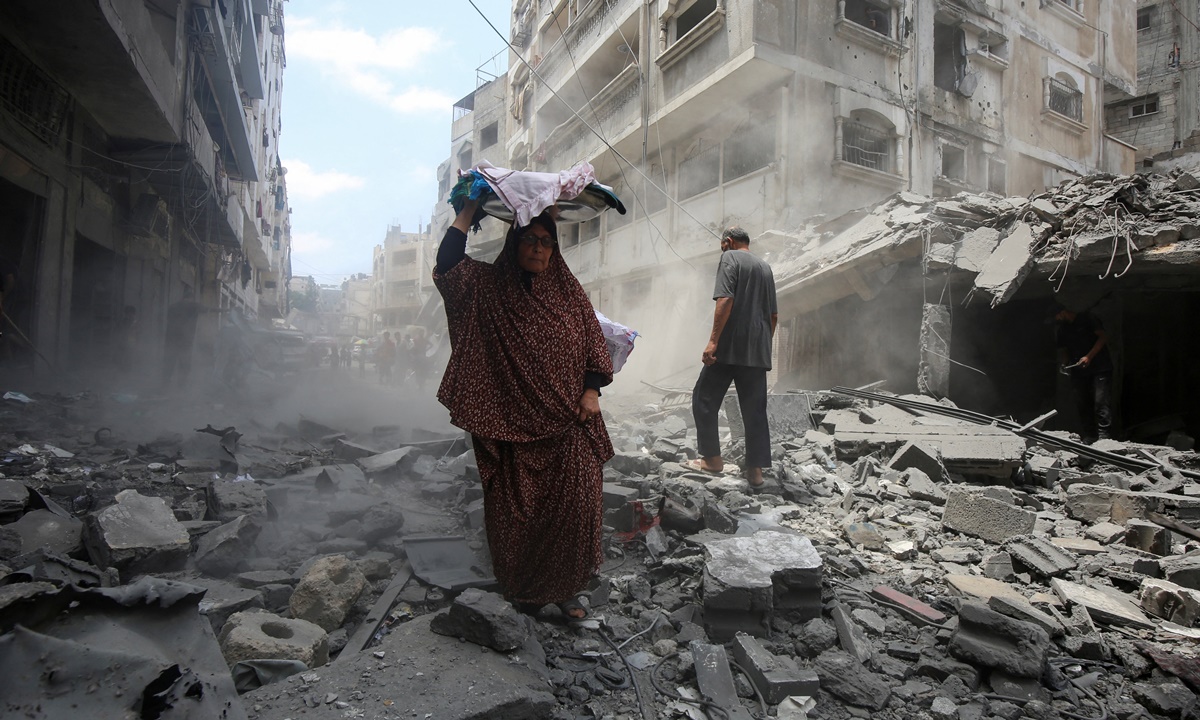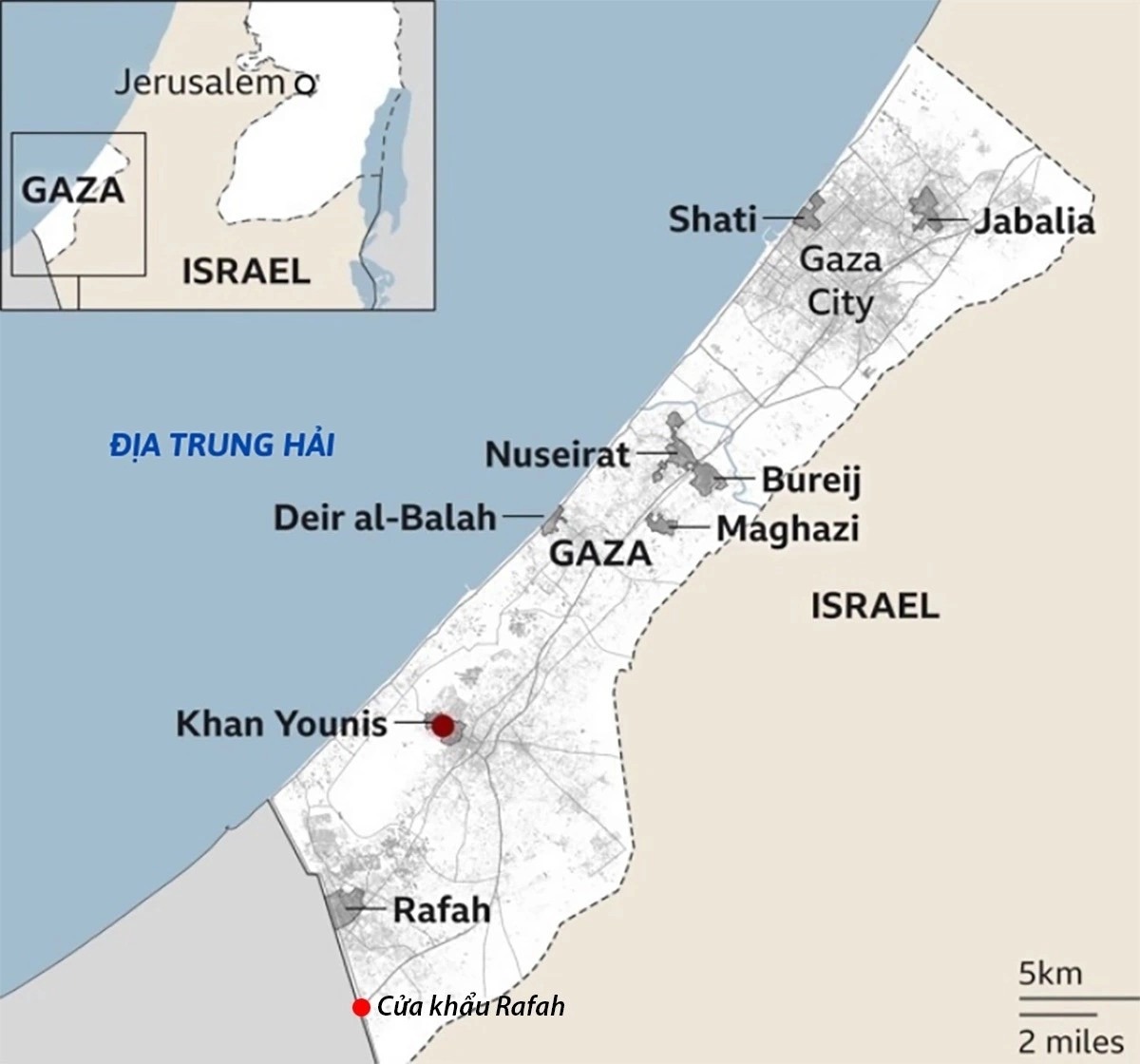Airstrikes targeting Gaza City have intensified in recent weeks, but the pre-dawn bombardment on 16/9 felt like a ceaseless earthquake to residents.
"The bombs didn't fall right next to us, but we could still hear them clearly. The ground shook beneath our feet with every explosion," said 40-year-old Fatima al-Zahra Sahweil, a media researcher and Gaza City resident.
This was one of the fiercest attacks by the Israel Defense Forces (IDF) on Gaza City in nearly two years of conflict. Israeli Defense Minister Israel Katz declared, "Gaza is burning."
Gaza health officials reported that the Israeli airstrikes killed approximately 91 people on 16/9 alone. At least 17 buildings in Gaza City were destroyed, including the Aybaki Mosque in the Tuffah district. In addition to the airstrikes, the IDF used robots equipped with explosives to demolish areas in the north, south, and east of the city.
 |
Evacuees from Gaza City shelter in a camp in Khan Younis, southern Gaza Strip, on 17/9. Photo: AFP |
Evacuees from Gaza City shelter in a camp in Khan Younis, southern Gaza Strip, on 17/9. Photo: AFP
Sahweil said the dead and injured from the bombing were taken to al-Shifa hospital, where she heard the situation was "catastrophic." However, Sahweil stopped following the news as she grappled with the nearly impossible decision of how best to protect her four children.
The Rashid coastal road, the "escape route" designated by the IDF for southward evacuation, was congested with exhausted and desperate people. The price of such a journey, regardless of the conditions, was too steep.
"I don't have a tent, nor the money to buy one. I also can't carry all the belongings I've acquired over time," Sahweil explained. "Then, we'd face the hardship of finding water and shelter. Leaving would simply be embarking on a journey into the unknown."
No one could guarantee their safety if they left Gaza City. Many have died from exhaustion, hunger, and illness during evacuation. Their destinations could become future targets.
Like over 90% of Gaza's residents, Sahweil's family has been displaced by conflict before, many multiple times. Sahweil and her family have evacuated a total of 19 times.
The IDF ordered around one million Gaza City residents to move south to avoid casualties from their impending ground offensive. But Sahweil, her family, and many others who have been to the south know it's no safe haven.
"It was nothing like life," Sahweil said of her family's time in southern Gaza earlier in the conflict. "Living in a dilapidated shack with rats, sand, the summer heat, the winter cold, and the pouring rain was unbearable."
"There wasn't a day without bombings and deaths in the south, even within the so-called 'humanitarian zone' declared by the IDF. Am I just fleeing from one deadly place to another? Is there any difference?" she questioned.
 |
Rubble after an Israeli airstrike in Gaza City in August. Photo: Reuters |
Rubble after an Israeli airstrike in Gaza City in August. Photo: Reuters
Unable to calculate the odds of survival with so much uncertainty, instinct urged Sahweil to stay in Gaza City despite the imminent dangers.
"Human nature is to seek stability, where you can lean against a solid wall and feel at home," she said. "A canvas tent isn't a home; it offers no safety, no sense of belonging."
Yousef al-Mashharawi, a 32-year-old photographer with two daughters and a son, faced a similar predicament. Sheltering with his family in Gaza City's Nasser district, he hesitated despite the escalating risks, unsure if staying or fleeing into uncertainty was more dangerous.
"Israeli jets and helicopters haven't stopped bombing. Last night was terrifying," Mashharawi said. "The strikes have been continuous for the past six days. Every 45 minutes to an hour, there's a bombardment, either from helicopters, fighter jets, or sometimes artillery."
 |
Location of Gaza City and other urban areas in the Gaza Strip. Graphic: BBC |
Location of Gaza City and other urban areas in the Gaza Strip. Graphic: BBC
"I haven't exactly decided to stay, but the truth is, I don't know where to go," he added. Mashharawi's family evacuated to southern Gaza earlier in the conflict, and he has no intention of returning.
"The IDF claims it's a 'humanitarian zone,' but that's completely false. It's the opposite. There were always attacks, and they continue," he stated. "Displacement is also psychologically damaging. No one likes to be displaced. I believe now, no area is truly safe in this strip of land, north or south. So, we'd rather stay in the north. Death only comes once, anyway."
Vu Hoang (According to Guardian, AFP, Reuters)












